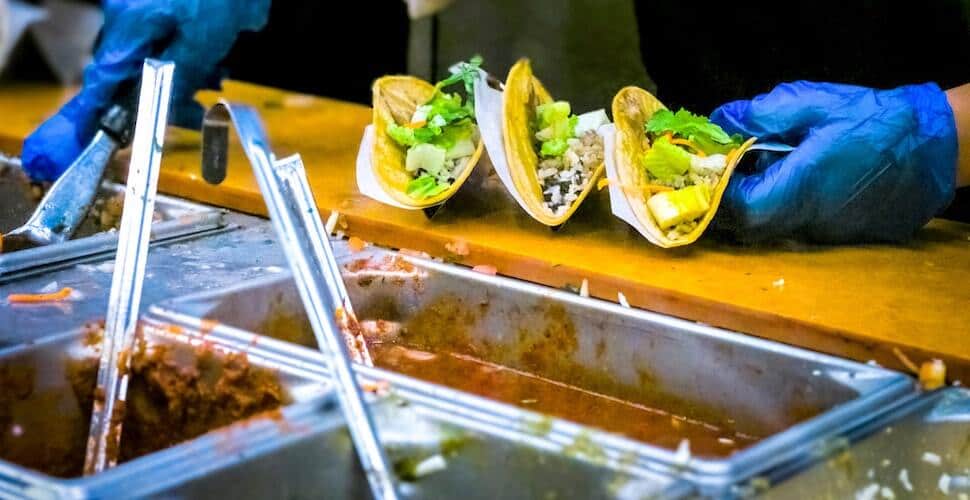A broad coalition of organizations campaigning against exploitative food service contracts at the University of Florida has been denied a seat on the committee negotiating future contracts, despite months of protests and boycotts.
The Food Justice Coalition brings together 36 organizations at the University of Florida (UF) and in the city of Gainesville—where UF is situated—and was formed in January to protest the university’s contract with food service company Aramark.
Aramark has been repeatedly criticized by campaigners including Freedom United for relying on prison labor, an exploitative practice that often amounts to legal modern slavery.
In addition to its connection to prison labor, Aramark—which has contracts with hundreds of educational institutions across the U.S.—has been frequently sued for a variety of labor abuses, including workplace safety violations and subminimum wages.
With UF set to decide its next provider after Aramark’s contract ends in 2022, the Food Justice Coalition has advocated through protests, boycotts, and occupations for the university to partner with a company that does not make use of prison labor.
However, despite hopes that the Coalition would be given a seat on the committee responsible for choosing a provider and deciding contract requirements, the Coalition’s request was rejected this month without comment.
The Independent Florida Alligator reports:
Ava Kaplan, lead organizer for the Food Justice Coalition, said UF administration does not welcome the coalition’s work.
“It’s difficult to explain how they’ve weaponized bureaucracy against us because the isolated incidents are justified by policy,” the 19-year-old political science sophomore said.
Kaplan said the conditions of Aramark UF workers and prisoners affect the entire student body.
“We need everyone’s support behind this to create the change that we need to see,” she said.
Incarcerated people in the United States can legally be paid below minimum wage and often face consequences for refusing to work, meaning their labor often amounts to modern slavery.
Even more shockingly, slavery is explicitly allowed as punishment for a crime under the 13th Amendment of the U.S. Constitution, despite international standards protecting prisoners from slavery-like practices.
The situation is even more concerning in private prisons and immigration detention centers, which face less oversight and have been involved in several lawsuits over claims of forced labor.
By continuing to utilize prison labor, companies like Aramark—and institutions that partner with it, such as UF—are profiting from this system of exploitation and perpetuating it.
Over 20,000 members of the Freedom United community have called for this cycle to end by urging all sectors in the United States to cut ties with forced prison labor.
Stand with the students and activists demanding change in Florida and add your name today.







Freedom United is interested in hearing from our community and welcomes relevant, informed comments, advice, and insights that advance the conversation around our campaigns and advocacy. We value inclusivity and respect within our community. To be approved, your comments should be civil.
I don’t understand how you activists think that this is slavery, most of the prisoners there have committed unbelievable crimes! They continue to live! They have free room and board and even get paid to be there! They have three meals a day, TV time, they can workout and read books, the list goes on! They should have to work for their keep just like the rest of us do. If they didn’t want to do time, they should not of done the crime!Where are the activists when it comes to homeless people?
Well if I knew that anything I was consuming had been produced by prison labor I would avoid it …mainly because I have a ‘thing’ about humans who might think it pretty funny to spit in said food ! I resist restaurants for the same reason…once that idea has crept into your head it is almost impossible to eat anything not prepared/cooked by yourself or near family !!!
All prisoners should be fully employed so far as their mental and physical capacity allows. Businesses willing to help with this should be encouraged. Money earned should be used to pay for prisoners accommodation. The emotional title ‘slave labour’ is not applicable.